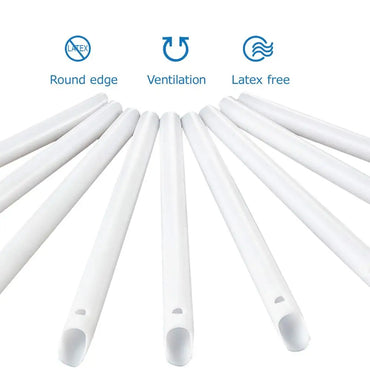The dental industry is undergoing a massive transformation, and much of it is driven by one major force: Dental Service Organizations (DSOs). What started as a model to streamline management and operations for general dental practices has evolved into a multi-billion-dollar movement that’s reshaping how dentistry is practiced, financed, and delivered—especially in the world of specialty dentistry.
From periodontics and endodontics to oral surgery and orthodontics, specialists are feeling both the opportunities and challenges of this new landscape. Let’s explore how DSO acquisitions are changing specialty dentistry and what the future may hold for providers who specialize in complex care.
The Rise of DSOs: A Quick Overview
Over the last decade, DSO acquisitions have skyrocketed. These organizations, which handle administrative, marketing, HR, and procurement functions for dental offices, have been especially active in acquiring general dental practices. The appeal is clear—dentists can focus on patient care while the DSO handles the business side.
However, as the DSO model matures, we’re now seeing an accelerated expansion into specialty practices. Consolidators are increasingly recognizing the profitability and stability of specialties like oral surgery, periodontics, and endodontics, which often have strong referral networks and higher-value procedures.
Why DSOs Are Targeting Specialists
1. Stronger Revenue Potential
Specialty practices often generate higher average production per patient compared to general dentistry. For DSOs backed by private equity, this makes specialists a prime target. Complex procedures, such as dental implants, bone grafting, and full-arch restorations, bring in higher margins—and that translates to more predictable returns for investors.
2. Vertical Integration
By acquiring both general and specialty practices, DSOs can create closed-loop referral systems. Imagine a DSO that owns both a GP office and a periodontist in the same region. Instead of referring patients to an independent specialist, those cases are kept in-house, improving patient retention and overall profitability.
3. Operational Efficiency
Specialists often have unique equipment and staffing needs—think surgical suites, sedation-certified assistants, or cone-beam CT scanners. DSOs can leverage economies of scale to provide these expensive resources more efficiently, making it easier for specialists to focus on care rather than cost management.
The Impact on Independent Specialists
For many independent specialists, the DSO wave brings mixed emotions. On one hand, there’s the allure of financial stability, modern infrastructure, and relief from administrative burdens. On the other hand, there are growing concerns about loss of autonomy, referral disruptions, and cultural shifts.
1. Changing Referral Patterns
Traditionally, specialty practices relied heavily on referrals from local general dentists. But as DSOs acquire more GP offices, those referrals increasingly stay within the organization. Independent specialists who once thrived on external referrals may now find their patient pipelines shrinking.
2. Pressure to Sell or Partner
As DSOs expand, specialists are facing pressure to align with larger networks—either through acquisition or partnership. For some, this provides an attractive exit strategy or an opportunity to grow. For others, it feels like being squeezed out of a rapidly consolidating market.
3. Cultural and Clinical Adjustments
Some specialists who join DSOs report challenges adapting to a corporate structure. Treatment recommendations, scheduling protocols, and even vendor preferences may become standardized. For clinicians used to independent decision-making, this can be an adjustment.
The Benefits of Joining a DSO (When Done Right)
While the shift can be daunting, many specialists are finding new opportunities within DSO partnerships—especially with organizations that understand the nuances of specialty care.
1. Access to Capital and Technology
Modern dental equipment and surgical tools are costly. DSOs often invest heavily in digital dentistry technologies, such as guided implant surgery, 3D printing, and AI-driven diagnostics. This gives specialists access to tools that might otherwise be out of reach for smaller private practices.
2. Administrative Relief
From insurance billing to compliance, HR, and marketing, DSOs handle the business complexities that can overwhelm clinicians. This allows specialists to focus more on patient outcomes and less on paperwork.
3. Growth and Expansion Opportunities
Some DSOs are building specialty supergroups—multi-location networks of oral surgeons, periodontists, or orthodontists working collaboratively. This model fosters peer support, mentorship, and shared resources, while still allowing for some level of autonomy.
The Risks and Considerations
Before joining or selling to a DSO, specialists should carefully evaluate several factors:
-
Contract Terms: Ensure that compensation models align with production and that there’s clarity around clinical decision-making authority.
-
Culture Fit: DSOs vary widely in their approach—some prioritize patient-centered care, while others are more profit-driven.
-
Exit Strategy: Understand how long you’ll be expected to stay on after acquisition and what the financial incentives look like long-term.
-
Reputation Management: Patients increasingly value personalized care; ensure the DSO’s branding and operational style align with your clinical philosophy.
What This Means for the Future of Specialty Dentistry
As DSO consolidation continues, we’re likely to see a two-tier system emerge in specialty dentistry:
-
Large, DSO-affiliated specialty networks that dominate metropolitan markets with integrated care models.
-
Independent boutique specialists who maintain niche practices emphasizing personalized care, advanced expertise, and strong referral relationships.
The most successful specialists will be those who can adapt strategically—leveraging technology, patient experience, and professional networks to differentiate themselves in a DSO-dominated environment.
Additionally, some forward-thinking DSOs are beginning to collaborate rather than compete with independents, offering shared services like marketing support, bulk purchasing, or referral exchange programs. This hybrid model could redefine what partnership means in dentistry.
Final Thoughts: Adaptation Is Key
Whether you’re a specialist considering a DSO partnership or an independent clinician determined to stay private, one thing is certain: the dental landscape is changing fast.
DSO acquisitions are not inherently good or bad—they’re a reflection of the evolving economics of modern dentistry. The key lies in understanding how to position yourself within this shift.
Specialists who stay informed, embrace innovation, and protect their clinical integrity will not only survive the DSO wave but thrive in it. The future of specialty dentistry belongs to those who can balance business acumen with clinical excellence—and that future is already unfolding.


























